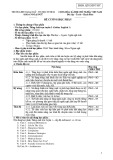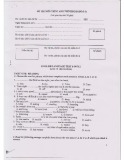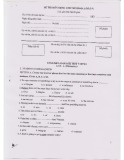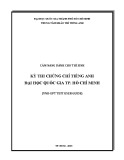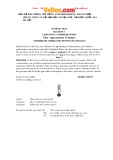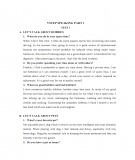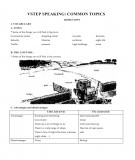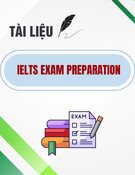
Đ KI M TRA 90 PHÚTỀ Ể
Bài 1: Đi n t . (đi n 1. Vào ề ừ ề Question 1, 2. Vào Question 2, ….15. Vào
Question 15)
Question 1: No matter how angry he was, he would never _____ to violence.
Question 2: ______ that Columbus discovered America.
Question 3: Anna is holding her shopping bag with one hand and turning the door
handle with
Question 4: I can’t find my dictionary at the moment. I hope it will ________ up
soon.
Question 5: The language centre offers courses of various levels, such as
elementay, intermediate and
Question 6: I _____ work last week, but I changed my mind.
Question 7: The Principal ussually has his pupils ______ waste paper for their
mini – project.
Question 8: He came _____ a lot of criticism for the remarks he made in a
television interview.
Question 9: They live on a busy road. ______ a lot of noise from traffic.
Question 10: Tom: “Can I have another cup of tea?
Christy: “ _____ .”
Question 11: Lora: “Do you mind if I turn on the fan?”
Maria: “ ____.”
Question 12: Due to ever more spreading poaching, there ______ a dramatic
decline in the number of elephants over the last decade.
Question 13: _____ make a good impression on her.
Question 14: People don’t like the way he shows off, ______ ?
Question 15: The use of vitamin ___ and herbs has become increasingly popular
among Americans
Đáp án:
1. Noise 2.without 3.decision 4.money 5.rest
6. to run 7.guarantee 8.maintaining 9.guide 10.tax
11.hardly 12.noisy 13.opportinity 14.agree 15.attend
1






